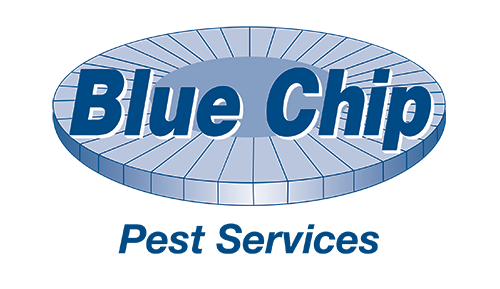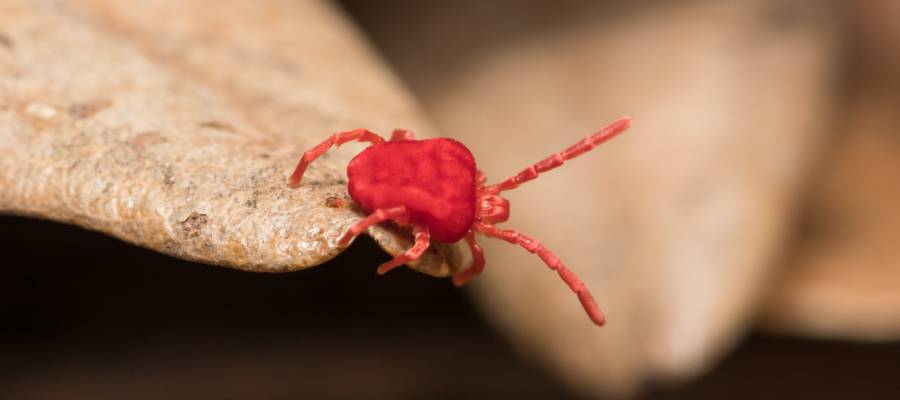Despite their name, there is nothing lucky about clover mites. At only 80 mm in size, these reddish-brown pests are minuscule, even smaller than the size of a pinhead. They differ from most other pests because they actually prefer cooler weather. Their presence typically increases in the springtime when they have the opportunity to not only enjoy some cooler temperatures but also take advantage of snacking on clovers. However, these mites don’t simply stick to a diet of clovers. These pests target healthy lawns that get plenty of water & fertilizer as well as over 200 different types of plants, including many spring flowers that bloom this time of year. For this reason, it’s crucial to learn what you can do to prevent clover mites from feeding on your lawn. Keep reading for clover mite prevention tips in St. Louis MO with the experts at Blue Chip Pest Services.
WHAT ARE CLOVER MITES?
As mentioned before, clover mites are minuscule pests that can be a major nuisance for homes and businesses alike. Once the hotter weather starts arriving on the daily (around May), clover mites lay their eggs then basically become dormant until September arrives and the temperatures start to cool off. Then, they may be spotted off and on for a couple of months before laying more eggs in the cracks and crevices of a home’s exterior or even between walls. These eggs will hatch around May. Clover mite populations can get to very large numbers, which is why they are such a pain to deal with. The good news is that clover mites cannot bite and are of no harm to people or pets. The bad news is that clover mites can turn your healthy lawn into a mess, and quickly.
HOW TO PREVENT CLOVER MITES
In order to avoid a clover mite infestation this spring and summer, it’s important to learn how to keep these pests away in the first place. By making some slight modifications to the exterior of your home, you can successfully lessen the risk of clover mites. Our top tips to prevent and control clover mites are as follows.
- Create a rock or mulch barrier between the foundation and the grass.
- Try not to water or over-fertilize plants around your home.
- Look for possible cracks around window frames and siding as these serve as entry points for clover mites. If any are found, take time to seal them to prevent clover mites from laying eggs there or using this to enter your home.
- While your gut instinct might be to smash or crush any clover mites found inside, keep in mind that they leave behind a red stain when crushed, especially on curtains, wallpaper, light-colored furniture, and rugs. A better method of removing clover mites from your home is to vacuum them up.
NEED HELP WITH CLOVER MITES IN MISSOURI?
These pests may be tiny, but they can cause huge problems when they start to feed on your healthy lawn. That’s where Blue Chip Pest Services can help. Our regular service programs will help maintain a barrier year-round to help keep these unwanted pests out. Contact our lawn care experts today to get started!


